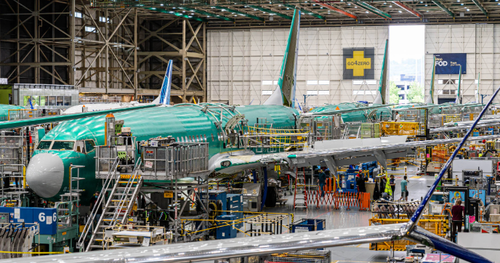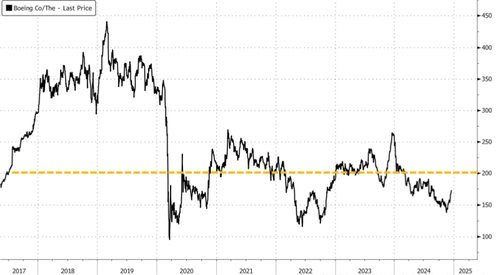Full Jet Production At Boeing Resumes In Seattle Area After Strike Turmoil
Just over a week after Boeing resumed production of its 737 Max aircraft at its Renton factory in Seattle, Washington, after strikes in early fall, the planemaker has returned to full jet production across all programs.
“We have now resumed production across our 737, 767, and 777/777X airplane programs,” Stephanie Pope, the head of Boeing’s commercial jet division, wrote in a post on LinkedIn on Tuesday night.
Pope Said, “Our teammates have worked methodically to warm up our factories in the Pacific Northwest, using Boeing’s Safety Management System to identify and address potential issues and ensure a safe and orderly restart.”
“In particular, we have taken time to ensure all manufacturing teammates are current on training and certifications, while positioning inventory at the optimal levels for smooth production,” she continued.
The resumption comes a little more than a week after Boeing restarted production of the 737, the planemaker’s best-selling commercial jet.
Two Max crashes, Covid travel downturn, supply chain snarls, financial challenges, and multiple Max jet incidents — including a door panel blowout on an Alaska Airlines 737 Max 9 — have been mounting headwinds for the struggling planemaker. On top of this, a seven-week strike sent the company to the brink of a devastating stall.
Analysts at Jefferies recently forecasted that Boeing will likely average about 29 737 Max jets per month in 2025, falling far short of the company’s pre-restriction goal of 56. Earlier this year, the FAA capped 737 Max production at 38 per month due to safety vulnerabilities within its Renton production line.
The good news is that Boeing is under new leadership. Newly appointed CEO Kelly Ortberg is dismantling disastrous DEI initiatives and shifting the focus to safety as the era of wokeism comes to an abrupt end.
As of mid-November, Goldman’s Noah Poponak and Anthony Valentini still had a “Buy” rating on the planemaker with a 12-month price target of $200.
“Our 12-month price target of $200 is derived from targeting a 4.5% free cash flow yield on 2026E free cash, discounted back one year at 12%. Key risks: (1) the pace of air traffic growth, (2) supply chain ability to ramp-up production, and (3) contract operating performance within the defense segment,” the analysts said.
Returning to output is critical for the cash-strapped planemaker.
Tyler Durden
Wed, 12/18/2024 – 07:45




